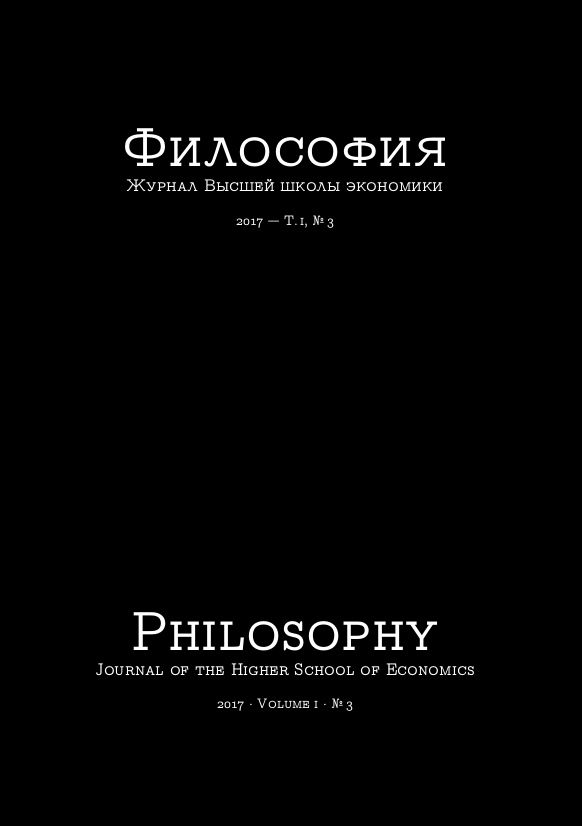The Problem of Rule-Following and the Concept of Social Relay
Abstract
The problem of rule-following as formulated by Ludwig Wittgenstein has interesting implications when applied to a sociocultural context. For a constructive discussion of this problem it is productive to apply to it the instruments of the theory of social relay proposed by Mikhail Rosov. The concept of social relay is based on one rather simple proposition: that people imitate each other’s behavior and learn from each other. If we assume that the whole human culture, social memory and all semiotic objects are social relays in the first place, then we should describe, research and understand them in this way, because in social relay the practice of rule-following and rule-changing is enacted. Every rule can be represented and transferred via social relay either as a written codex of some kind (e. g. an instruction manual, a law, a recipe) or as direct examples of practical actions. These modes compliment each other. It is therefore productive to take the next step and claim that the ways in which social relays are reproduced are also passed on as social relays, and the examples also demonstrate the methods of using the examples. So, in contrast to the classical view of identity and difference as supposedly present in the things themselves, it would be more correct to claim that rules are enacted according to the identification of the new things and actions with the exemplars. This identification is established anew every time in the course of a particular relay and simultaneously produces the difference from all the other things and actions. In this sense, identity and difference appear as a result of the operations of identification and differentiation, and a consensus as a result of coordination. So, the problem of rule-following appears as an unsolvable paradox only from the classical perspective of logical positivism. Postnonclassical approach allows us to conceive of the whole range of its effects without the unnecessary and pointless reductionism.






